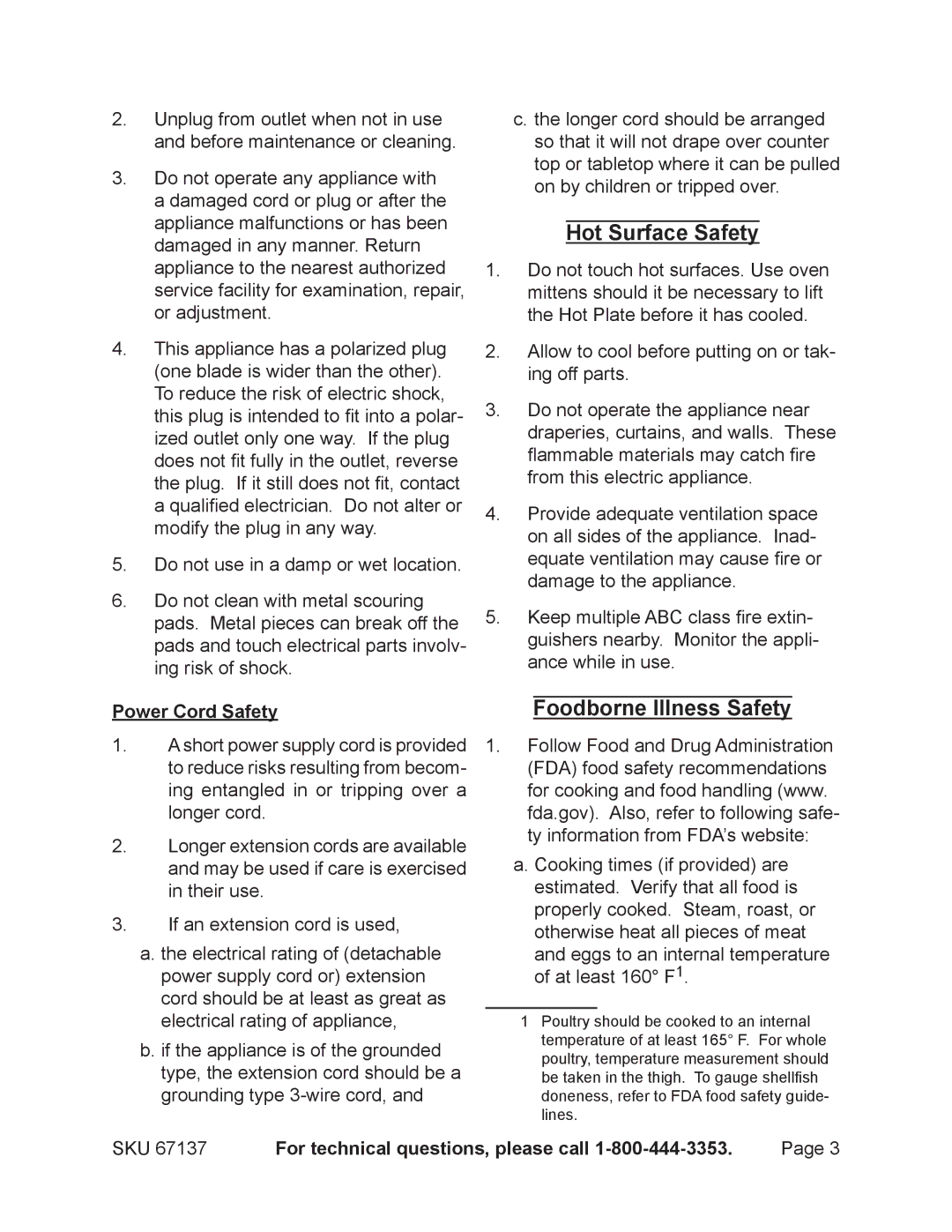
2.Unplug from outlet when not in use and before maintenance or cleaning.
3.Do not operate any appliance with a damaged cord or plug or after the appliance malfunctions or has been damaged in any manner. Return appliance to the nearest authorized service facility for examination, repair, or adjustment.
4.This appliance has a polarized plug (one blade is wider than the other). To reduce the risk of electric shock, this plug is intended to fit into a polar- ized outlet only one way. If the plug does not fit fully in the outlet, reverse the plug. If it still does not fit, contact a qualified electrician. Do not alter or modify the plug in any way.
5.Do not use in a damp or wet location.
6.Do not clean with metal scouring pads. Metal pieces can break off the pads and touch electrical parts involv- ing risk of shock.
Power Cord Safety
1.A short power supply cord is provided to reduce risks resulting from becom- ing entangled in or tripping over a longer cord.
2.Longer extension cords are available and may be used if care is exercised in their use.
3.If an extension cord is used,
a.the electrical rating of (detachable power supply cord or) extension cord should be at least as great as electrical rating of appliance,
b.if the appliance is of the grounded type, the extension cord should be a grounding type
c. the longer cord should be arranged so that it will not drape over counter top or tabletop where it can be pulled on by children or tripped over.
Hot Surface Safety
1.Do not touch hot surfaces. Use oven mittens should it be necessary to lift the Hot Plate before it has cooled.
2.Allow to cool before putting on or tak- ing off parts.
3.Do not operate the appliance near draperies, curtains, and walls. These flammable materials may catch fire from this electric appliance.
4.Provide adequate ventilation space on all sides of the appliance. Inad- equate ventilation may cause fire or damage to the appliance.
5.Keep multiple ABC class fire extin- guishers nearby. Monitor the appli- ance while in use.
Foodborne Illness Safety
1.Follow Food and Drug Administration (FDA) food safety recommendations for cooking and food handling (www. fda.gov). Also, refer to following safe- ty information from FDA’s website:
a.Cooking times (if provided) are estimated. Verify that all food is properly cooked. Steam, roast, or otherwise heat all pieces of meat and eggs to an internal temperature of at least 160° F1.
1Poultry should be cooked to an internal temperature of at least 165° F. For whole poultry, temperature measurement should be taken in the thigh. To gauge shellfish doneness, refer to FDA food safety guide- lines.
SKU 67137 | For technical questions, please call | Page 3 |
